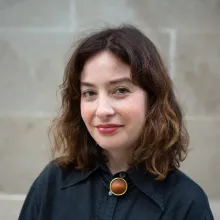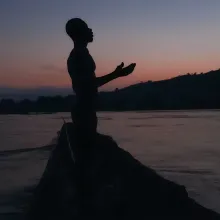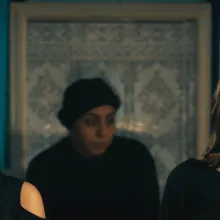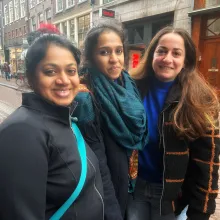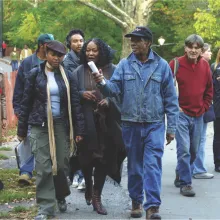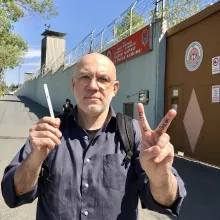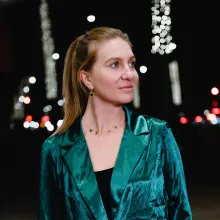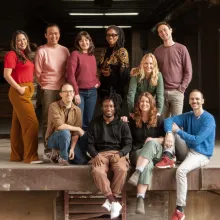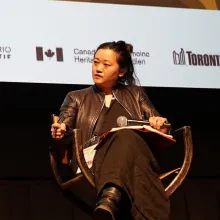As the theatrical market for arthouse and documentary films continues to recover from the many challenges of the COVID-19 pandemic, it may not seem like the most opportune time to open a new cinema. But timing is what you make of it. Community, resilience, and innovative thinking matter a whole lot too—and those qualities have helped power the successful first year of Firehouse, DCTV’s 67-seat, single-screen cinema for documentary film. Opened in late 2022, Firehouse Cinema has become a welcome and welcoming addition to the documentary landscape in New York City. Founded by Jon Alpert and
Latest Posts
DOC NYC touts itself as “America’s Largest Documentary Film Festival,” as its tagline states. But for some, bigger isn’t always better. With 114 feature documentaries and 129 short films; an industry conference called DOC NYC PRO; honoree lists such as 40 Under 40 and Documentary New Leaders; and its famous Short List film program and Visionaries Tribute event (known to insiders as “The Prom”), DOC NYC is a sprawling event. Over the past 14 years, it has grown into an outsized destination for documentary filmmakers, with big promises of exposure, validation, and most of all, awards buzz during
We first meet our protagonists seated together on a brightly lit set, their figures visible in the gap between a pair of dark curtains. Two hands come into view and clap together a film slate: Take One, Scene One. “In this film, I will try to tell the story of Olfa’s daughters,” declares director Kaouther Ben Hania, in a voiceover. “The two youngest, Eya and Tayssir, still live with her. The two eldest, Rahma and Ghofrane, were devoured by the wolf.” Loaded with poetic license, this phrase draws on the figurative to offer a cipher that holds the truth about their fates. Naturally, multiple
IDA’s Logan Elevate 2023 grantees attended one of the most celebrated gatherings of documentary filmmakers, producers, and enthusiasts from around the globe, IDFA (International Documentary Film Festival Amsterdam). This festival is known for pushing the boundaries of nonfiction storytelling, and it is seen as a melting pot of creativity, inspiration, and collaboration. This blog post aims to capture the essence of the cohort’s time at the festival, sharing the invaluable insights gained, connections forged, and the indelible impact of the IDA Logan Elevate Grant on our documentary filmmaking journey.
The pioneering American filmmaker William Greaves (1926–2014) produced, directed, shot, and edited more than 100 experimental, documentary, and social issue–based films. His four Emmy nominations cap a lifetime as a successful songwriter, dancer, and actor; he was a member of the Actors Studio and had featured roles in independent, Black-cast movies of the late 1940s.
In July 2021, a letter calling attention to my unlawful and unjust dismissal from my teaching position of 14 years at Boğaziçi University in Istanbul, Turkey, and demanding my reinstatement was circulated internationally. It was signed by many colleagues in the documentary world. I am indebted to them for their support and solidarity. But to really understand what happened to me and to Boğaziçi University, one needs to understand what happened prior and since. Back in January 2016, I began actively working on my fourth feature documentary film, Nuclear alla Turca , researching, writing, and
We are thrilled for the return of Documentary Magazine. For the past 42 years, it has served as a space for dialogue, provocation, and an archive of the documentary form’s power, persistence, and evolution. We want to give thanks to Tom White—who gave shape to the magazine for 22 years—alongside a devoted community of readers and contributors for getting us to this milestone. The magazine was paused for nearly a year following his departure, and issue #2 is presented with Abby Sun as its editor. Abby’s curiosity and intellect are boundless, and we join all of you in anticipation of what future issues will bring.
Polina Herman is a Ukranian Producer based in Los Angeles. In 2022, her film Price of Conflict was nominated for the 38th Documentary Awards, ABC News VideoSource category. She is an alumnus of the 2023 UCLA Professional Program in Producing, a member of the Producers Guild of America, European and Ukrainian Cinema Academies, and the National Union of Cinematographers of Ukraine, amongst other organizations. In 2016, Herman founded her company, UP UA STUDIO , which is engaged in film production, development, and advancement of Ukrainian cinema in Ukraine and abroad. In 2022, she organized and
Making a Production is Documentary ’s strand of in-depth profiles featuring production companies that make critically-acclaimed nonfiction film and media in innovative ways. These pieces probe the creative decisions, financial structures, and talent development that sustain their work—in the process, revealing both infrastructural challenges and industry opportunities that exist for documentarians. One wall of windows feeds light into the Meerkat Media office from the atrium of the Brooklyn Army Terminal, highlighting a prominent black AV equipment cage. The large equipment cage was, early
Dear Readers, This issue returns Documentary Magazine to print after a 10-month pause. At first, the time off from printing allowed us to begin to reimagine a print periodical with such a strong legacy as this one. But a few months in, we needed the pause to locate a new printer after the closure of the magazine’s former printer, Boss Litho. How do we keep this magazine from becoming obsolete, like so many other print media? It is clear that this magazine must draw upon what makes documentary films so powerful—an inextricable connection to reality that renders truth, clarity, complexity, and
